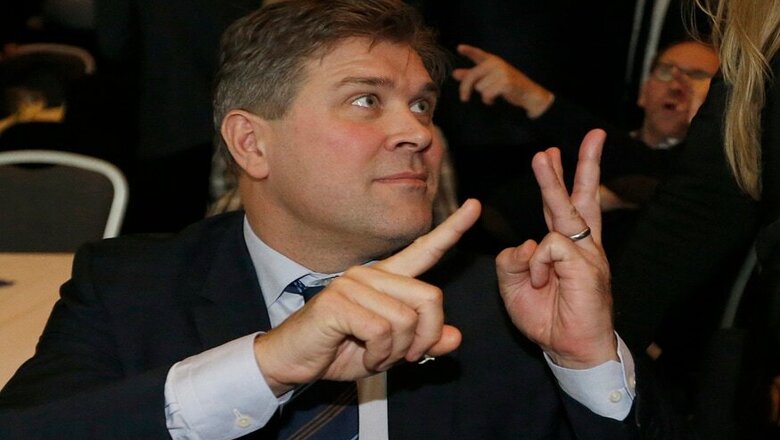
views
Reykjavik: Iceland's conservative prime minister won a snap election despite a string of scandals, final results confirmed on Sunday, but it remained unclear whether he could form a viable coalition.
Bjarni Benediktsson, 47, was accused named last year in the "Panama Papers" worldwide tax-evasion leaks. He has also been accused of wrongdoing during Iceland's financial collapse in 2008.
Nevertheless his Independence Party beat its rivals in Saturday's election, according to final results published on Sunday. It won 16 seats in the 63-seat parliament. Turnout was 81 percent.
No party won a majority. It could take months before Iceland has a new government in place as thorny coalition negotiations await. Benediktsson fended off a challenge from the Left Green Movement and its potential allies, the Social Democratic Alliance and the anti-establishment Pirate Party.
The Left-Green Movement came in second with 11 seats, the Social Democratic Alliance with seven seats, and the Pirates with six seats.
Under the Icelandic system, the president tasks the leader of the biggest party with forming a government. "I am optimistic that we can form a government," Benediktsson told AFP after early results on Saturday showed him in the lead.
The prime minister called the snap election in response to various allegations of wrongdoing, which he denied. The Independence Party lost five seats in parliament, according to Sunday's results. But it still came out on top -- apparently helped by Iceland's thriving economy, fuelled by a flourishing tourism sector.
The party has been involved in almost every government in Iceland since 1980.
But growing public distrust of the elite has spawned several anti-establishment parties. They have splintered the political landscape and made it increasingly difficult to form a stable government.
Eight parties won seats in parliament. Benediktsson's main rival, the Left-Green Movement won fewer votes than expected. It will need at least five allies to form a 32-seat majority to dethrone the conservatives. If it managed to do so, it would form only the second left-leaning government in Iceland since the country's proclamation as a republic in 1944.
"I'm worried that we may have to face up to the likelihood of long, drawn-out discussions and attempts to form a government," Arnar Thor Jonsson, a law professor at Reykjavik University, told AFP. Negotiations to form a coalition after the October 2016 election took three months.


















Comments
0 comment